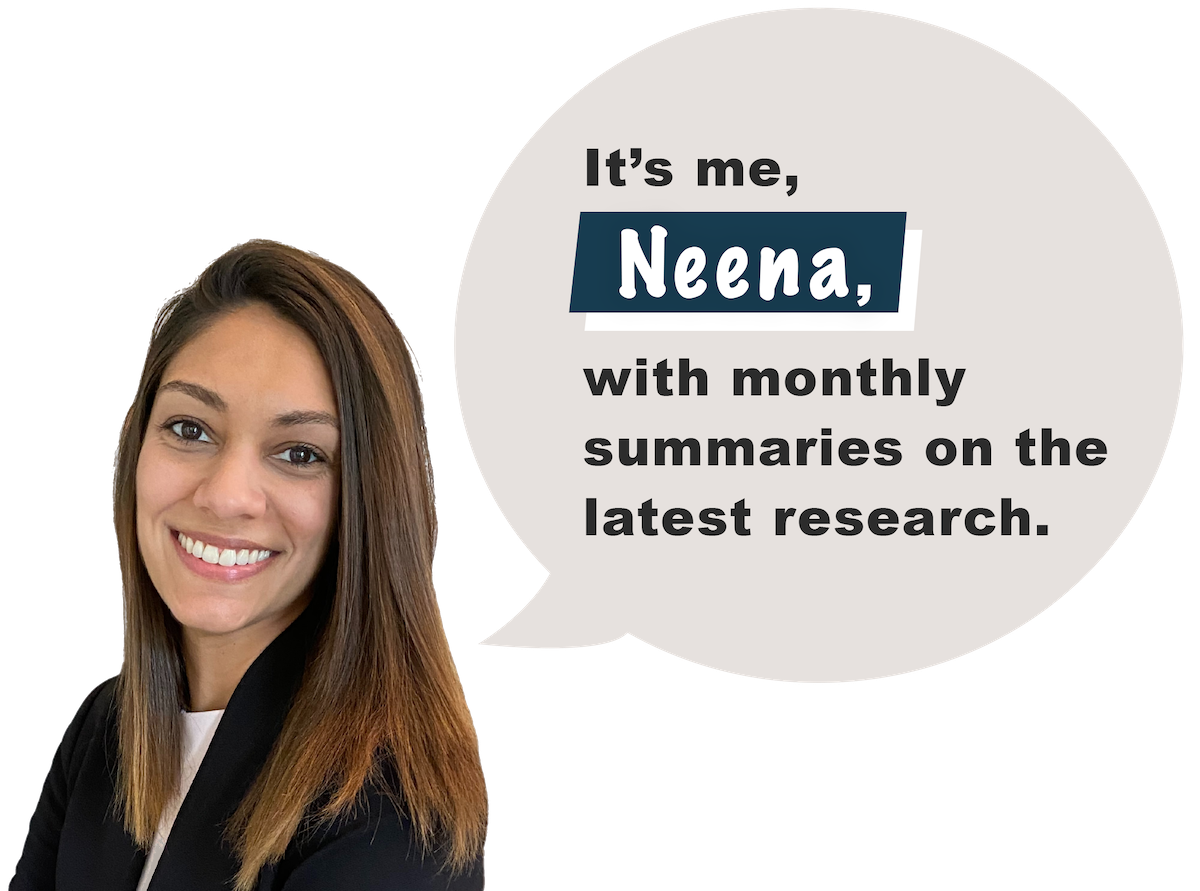 Welcome to the Reading Research Recap!
Welcome to the Reading Research Recap!
I am Dr. Neena Saha, Research Advisor at MetaMetrics. My focus is bridging the research-practice gap so that you can access useful resources that support reading success, expand awareness of the latest reading research, and inform your teaching and learning strategies. This monthly compendium offers the most relevant and must-read research impacting the reading and learning landscape, including easy-to-view digestible highlights. We want the data and findings to be as useful to you as possible, so please do connect with me with any ideas and comments for next month. Enjoy the latest Reading Research Recap!
📚 Deep Dive: How do you combine science of learning with science of reading?
Hi everyone!
There’s been a lot of talk lately about the science of learning within the science of reading circles. Indeed, there has been a lot more talk around things like working memory and cognitive load theory and how this relates to reading instruction. That is why I chose this new review-style paper, Understanding the relations between cognition and academic skills in the context of instruction.
This paper had so much great information, and here were my key takeaways:
1. Cognitive skills and academic skills interact and mutually support each other throughout development:
“…the relationship between cognition and academic skills is not as static or one-directional as previously suggested. Rather, cognitive and academic skills exhibit mutualism, interaction and mutually supporting each other during Development.”
2. Peng et al. found that a “more is better” approach for teaching foundational knowledge skills (phonological awareness, phonics, fluency, vocabulary), whereas for strategy-based skills (comprehension strategy), an “optimal combination” approach is better. (See this paper on the optimal combination of strategies to use).
“Multi-component explicit instruction for at-risk readers, conducted within constrained timeframes, should carefully consider the interplay between cognitive load and the nature of instructional materials. For knowledge-based instruction, following a ‘the more the better’ principle may be effective, whereas strategy-based instruction could benefit from an ‘optimal combination approach’, emphasizing only certain combinations of components can yield maximum effects.”
Cognitive Load Theory can explain these results because knowledge-based skills, with practice, are converted to long-term memory (think how once you learn how to pronounce a word or the meaning of the word, you can recall it quickly), and therefore don’t use up working memory capacity. The same is not as true for reading comprehension – where you might be constantly encountering new information, not in long-term memory, and therefore your working memory capacity might be at max or burned out. In this latter situation, it might be best to teach students the “optimal combination” of strategies to use at a given time.
3. Domain-specific working memory training is better than domain-general cognitive training. Domain-specific working memory instruction means embedding working memory capacity training within reading instruction. An example of this would be to have a student read a multi-paragraph text, and after each paragraph, they summarize the main idea. Then, after reading all the paragraphs, they recall each paragraph’s main idea and summarize this into a coherent summary for the whole piece. You can adjust the length and difficulty of the text based on their ability.
Okay, those are three of the main points from this review piece, but if you’re interested, I highly recommend emailing the author to read the full paper!
Teacher Professional Development, Training, Education Policy
- How Misunderstandings of Text Complexity May Have Widened the Achievement Gap (commentary)
- Children’s Books as Reflective Tools for Increasing Self-Understanding and Peer-Understanding: The Perspective of Children with Dyslexia
- A Preliminary Evaluation of Dyslexie’s Influence on Adult Dyslexic Reading Performance
- How Have Teacher Candidates Learned to Use Evidence? A Systematic Review of Research
Word Recognition, Decoding, Morphology, Foundational Skills, Etc.
- A validation study of the Martin and Pratt nonword reading test
- The effect of preschool vocabulary and grammar on early reading comprehension and word reading: A systematic review and meta-analysis (Open Access)
- Alphabet Knowledge Trajectories and U.S. Children’s Later Reading and Spelling (Open Access)
- Shifting Reading Processes and the Development of Word Reading Fluency
- Greater functional connectivity between executive function-related networks predicts word reading fluency: an fMRI study in children (open access)
- Development of auditory word processing in different task settings: a neurophysiological study on orthographic processes in reading and spelling
- Not a One-Size-Fits-All Approach: Examining the Impact of Systematic K-6 Spelling
- Instruction (Dissertation, not yet peer-reviewed)
- Computer-Delivered Morphology-Focused Vocabulary Instruction: A Pilot Study (open access)
- Learning by writing: The influence of handwriting and typing on novel word learning in typically developing readers and readers with dyslexia (open access)
Fluency
- Pairing phrase-cued text with readers theatre: Effects on reading prosody and automaticity (open access)
- Exploring change in word reading accuracy as a predictor of oral reading fluency above
- concurrent word reading accuracy (preprint, not yet peer-reviewed)
Comprehension
- Did screen reading steal children’s focus? Longitudinal associations between reading habits, selective attention and text comprehension
- Unpacking the Relation Between Oral Language and Written Composition: A Meta-Analysis
- Initial Pilot of a Progress Monitor for Reading Comprehension Based on Sentence Ordering
- A Systematic Review of Theoretical Frameworks in Reading and Writing: Insights from JAAL (2015–2024)
- Syntactic Comprehension—A Separate Source of Individual Variance in Middle-School Children’s Reading Comprehension
- Effectiveness of a Pronoun Interpretation Explicit Teaching on 1st-Graders’ Comprehension
- The Relation Between Text Reading and Reading Comprehension Varies as a
- Function of Developmental Phase, Orthographic Depth, and Measurement
- Characteristics: Evidence From a Meta-Analysis
- A neurobiologically inspired model of sentence comprehension

Want to start receiving monthly notifications for this series?
Create or log in to your Lexile® & Quantile® Hub account. Once logged in, navigate to your account to update your mailing list preferences.
 Speaking of the Lexile & Quantile Hub — Exciting news!
Speaking of the Lexile & Quantile Hub — Exciting news!
A completely new version of the Lexile & Quantile Hub is here! The redesign features a streamlined user experience and enhanced accessibility to support a range of abilities.

